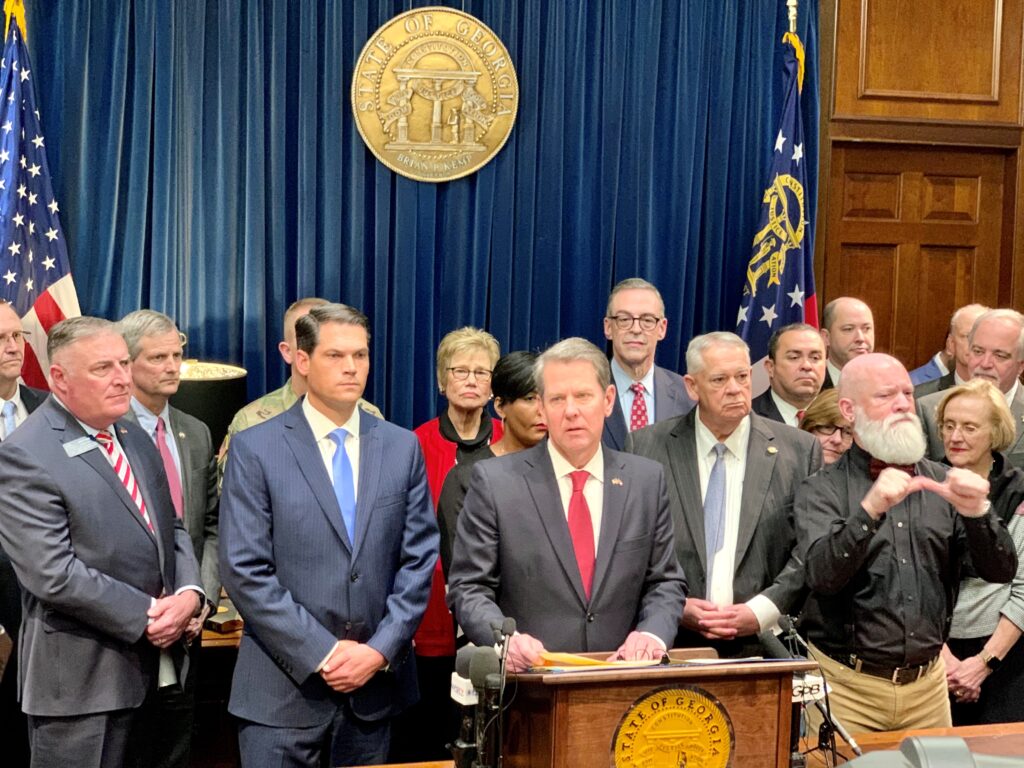
Gov. Brian Kemp is sending more than 100 Georgia National Guard members to oversee operations at assisted-living facilities and nursing homes in the state where elderly residents have been infected with coronavirus.
Senior citizens are among the most vulnerable populations at risk for harmful health effects from COVID-19, the disease caused by the novel strain of coronavirus that has sparked a global pandemic. The virus had infected at least 3,817 people and killed 108 in Georgia as of noon Tuesday.
On Tuesday, 20 National Guard members were deployed to Pelham Parkway Nursing Home in South Georgia, according to a news release from the governor’s office. The Pelham facility has reported five residents tested positive for coronavirus, Kemp’s office said.
The 20 soldiers in Pelham are tasked with cleaning the facility, auditing its sanitation methods and training staff on measures aimed at halting the virus’ spread. Clusters of four or five soldiers will head to other elderly care facilities across the state in the coming weeks, according to the news release.
In all, 100 National Guard members will fan out across the state to help prop up nursing homes and assisted living facilities.
“The Georgia National Guard stands ready to assist any long-term care facility in this time of need through staff training and implementation of infectious disease control measures,” said Adjutant General Tom Carden. “Our training has prepared us to fight this virus, and we are eager to lend a hand in this battle.”
Kemp previously had ordered residents in elderly care facilities to remain sheltered-in-place until noon Monday, April 6. His office, along with the Georgia Health Care Association, also previously called on the state’s nursing homes and assisted-living facilities to restrict visitations, eliminate group activities like community dining and routinely screen both residents and staff for symptoms of the respiratory virus.
“Georgia’s top priority is increasing health-care capacity to protect vulnerable Georgians, especially those residing in long-term care facilities,” Kemp said in a statement. “If we can keep these populations as healthy as possible, we will be able to conserve precious medical supplies and hospital bed space in the coming days and weeks.”
